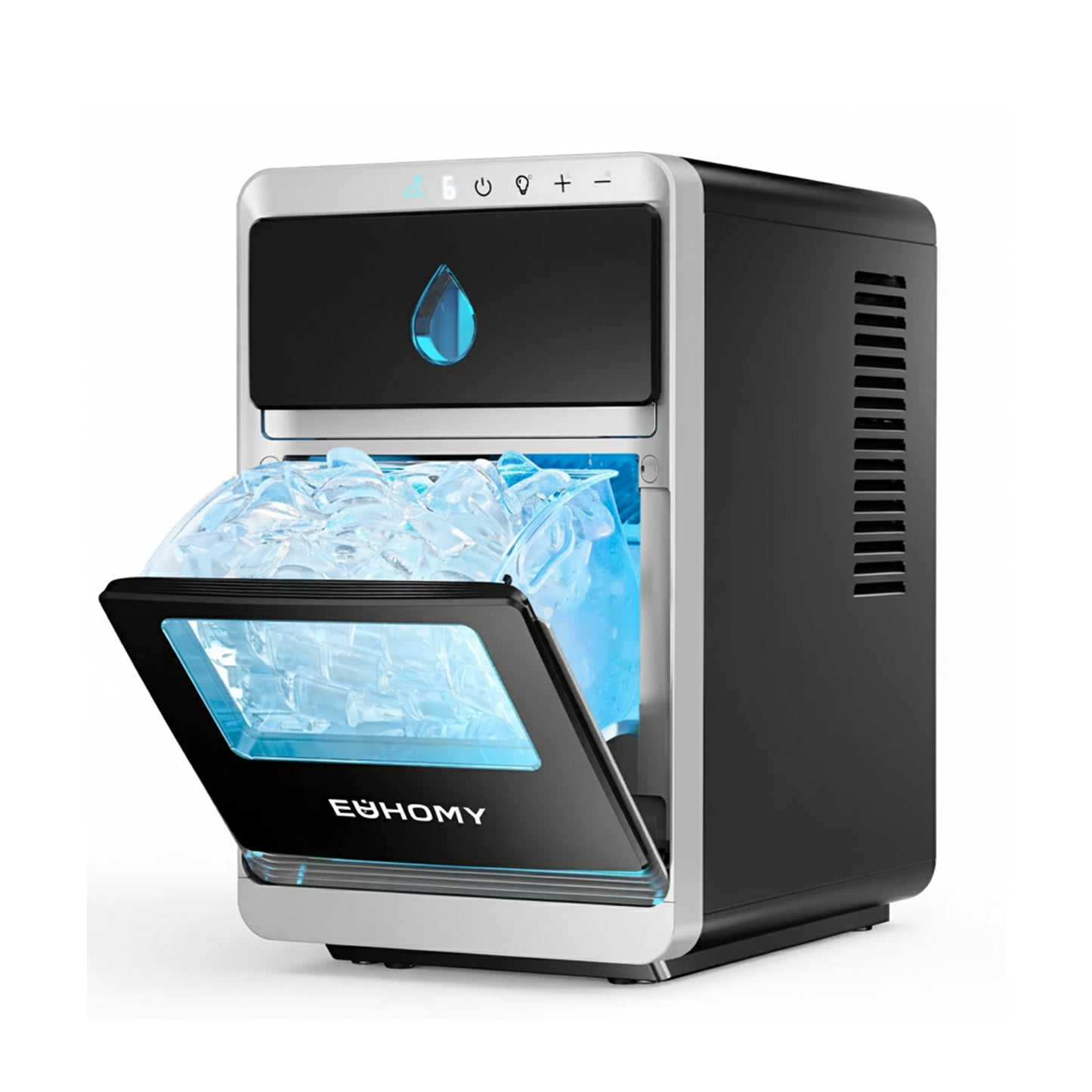Unleash the Chill: Discover the Ultimate Small Ice Makers That Everyone's Raving About!
Having a small ice maker can be a game-changer for various occasions, whether you're hosting a festive gathering, enjoying a quiet evening with a cocktail, or simply trying to keep your drinks cool during a summer barbecue. Unlike traditional ice-making methods that often involve waiting hours for a tray to freeze, small ice makers provide the convenience of producing ice quickly and efficiently. They come in handy for those spontaneous get-togethers or for simply enjoying a chilled drink at home. In this article, we’ll explore the best small ice makers on the market, helping you to compare different options and find the perfect fit for your needs.

Understanding Small Ice Makers
Small ice makers are compact appliances designed to produce ice cubes quickly and efficiently. They generally fall into two main categories: countertop models, which are designed to sit on a kitchen counter, and portable models, which are lightweight and easy to transport. Most small ice makers operate using either a compressor system or thermoelectric cooling technology. Compressor systems are typically more powerful and can produce ice faster, while thermoelectric models are quieter and more energy-efficient. Understanding these distinctions is crucial when deciding which type of small ice maker will best suit your lifestyle.
Key Features to Look For
When choosing a small ice maker, several key features should guide your decision-making process. First, consider the ice production capacity; a unit that produces a higher volume of ice will be more suitable for parties or larger gatherings. Next, look at the speed of ice production—some models can produce ice in as little as six minutes! Size and portability are also important factors; if you plan to take your ice maker on the go, opt for a lightweight and compact model. Energy efficiency is another consideration, especially if you intend to use the machine frequently. Lastly, ease of cleaning can greatly impact your overall satisfaction with the unit, so look for models that feature removable parts and straightforward cleaning processes.
Comparative Analysis of Top Options
In the realm of small ice makers, options abound to cater to various needs. For home use, look for a model that balances capacity and production speed, ensuring you never run out of ice during a gathering. If you frequently entertain guests, you might prefer a unit that produces nugget-style ice, which is perfect for cocktails and blended drinks. For those who love to travel, portable ice makers are a fantastic choice. They can easily fit in a car trunk and operate on both household outlets and car power, making them ideal for picnics or road trips. Each of these categories has its unique strengths, so consider your primary use case when assessing the best small ice makers for you.
Pros and Cons of Small Ice Makers
While small ice makers offer numerous advantages, they also come with some drawbacks. One of the primary benefits is the convenience they provide, producing ice on demand without the hassle of trays. Additionally, many models are designed with user-friendly interfaces, making them accessible for everyone. However, some small ice makers might have a limited ice production capacity compared to traditional ice machines, meaning they may not be suitable for extremely high-volume needs. Moreover, the initial investment might be higher than purchasing a simple ice tray. Weighing these pros and cons can help you make an informed decision that aligns with your specific requirements.
Final Thoughts on Choosing the Right Ice Maker
In summary, selecting the right small ice maker is essential for enhancing your entertaining and personal experiences. With various options available, from portable models to those designed for home use, understanding your needs is key. Reflect on factors such as production speed, capacity, and portability to find the best small ice maker that suits your lifestyle. With the right model, you can unleash the chill and keep your drinks icy cold, no matter the occasion!







